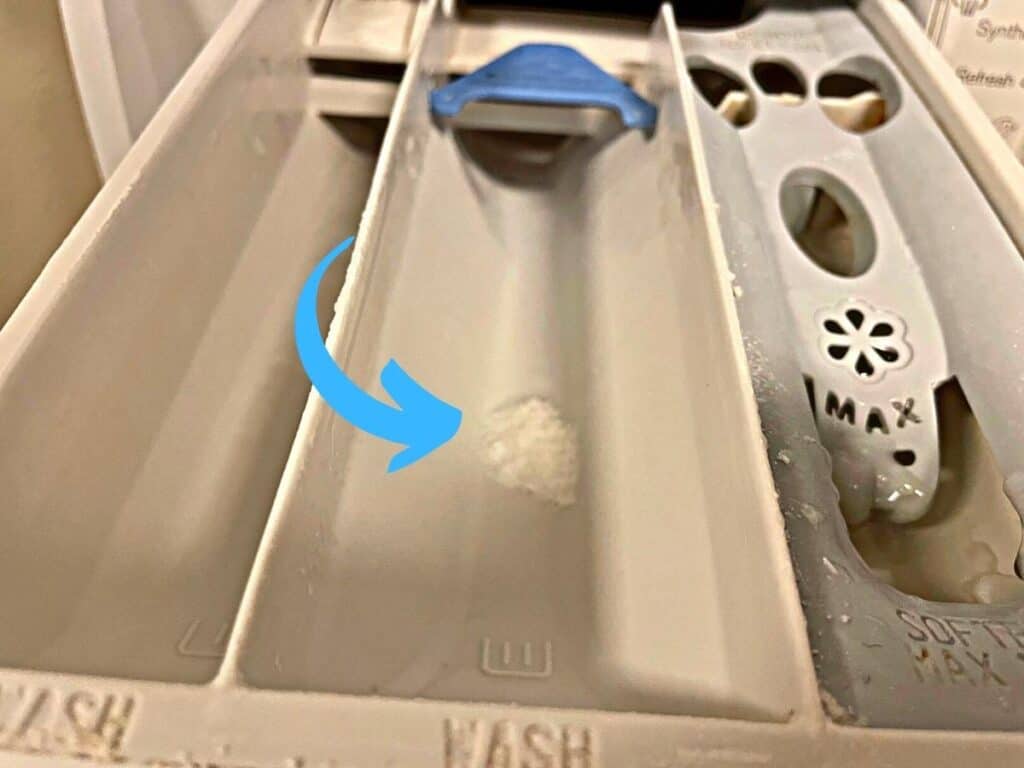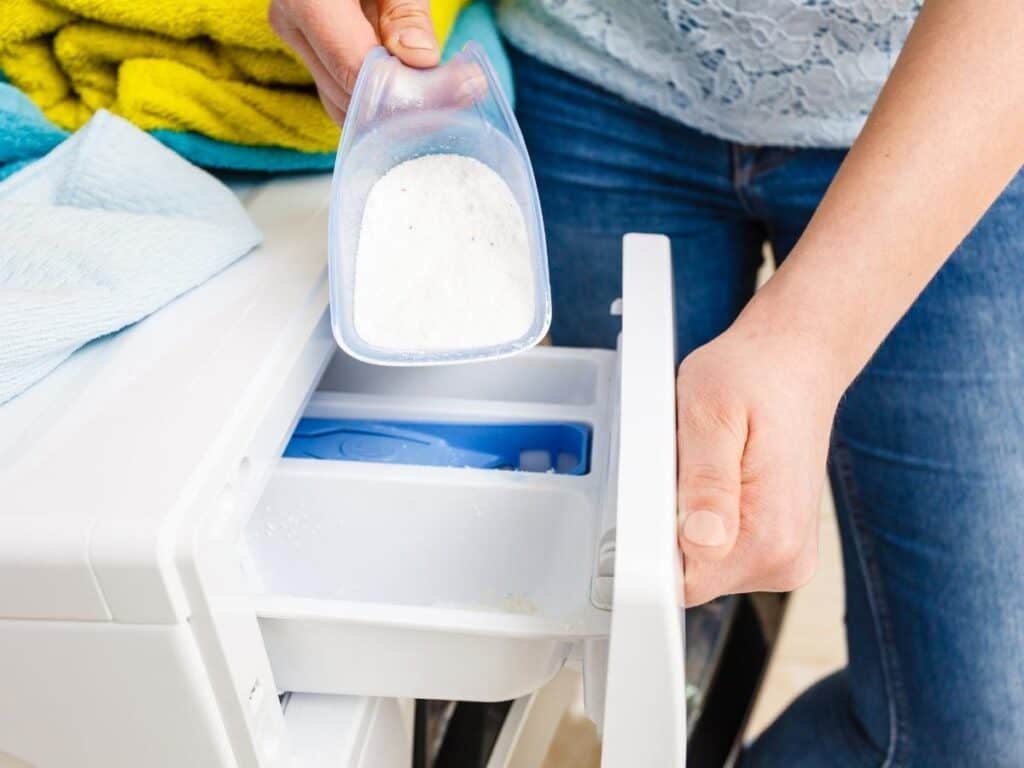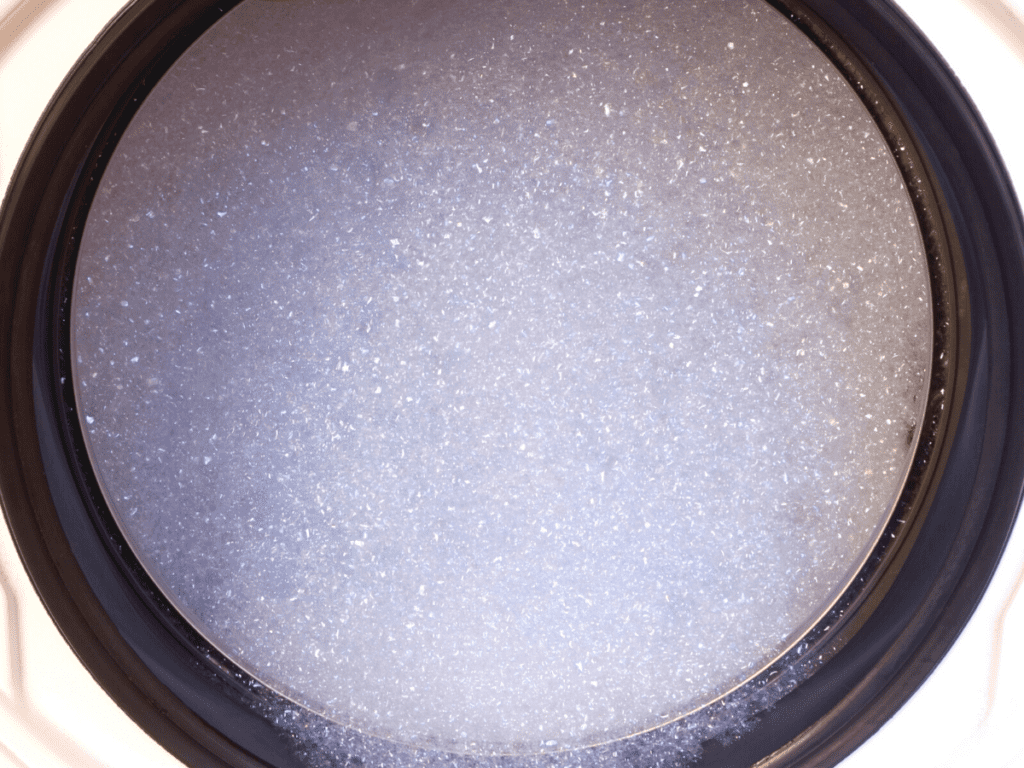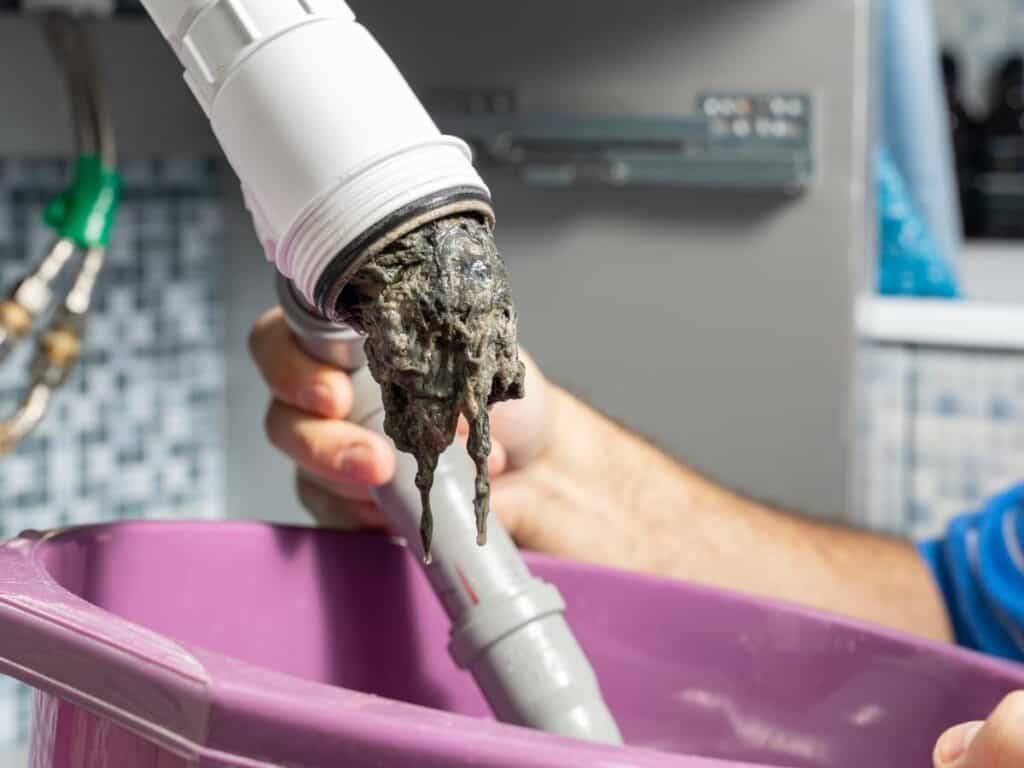Powder detergent is affordable and easy to find. Compared to plastic bottles of ordinary liquid detergent, its cardboard packaging makes it more attractive to environmentalists. But to washing machines, is powder detergent always the best option?
Powder detergent can damage your washing machine over time. Sometimes powder detergent may not fully dissolve in water, leaving little chunks with every wash. These chunks eventually build up into hard residue that causes blockages in the drain pump of your washing machine.
In this article, I’ll talk about how powder detergent can damage your washing machine, and why it might be tempting to choose powder over other types of detergents. I’ll also dive deeper into some of the unspoken truths of powder detergent in relation to your clothes and septic system.
How Powder Detergent Damages Washing Machines

If you’re fond of powdered laundry detergents, you might want to consider switching it out for liquid detergent. Let’s take a look at some of the reasons why.
Blockages
As mentioned, powder detergent is notorious for not fully dissolving in water.
When the powder doesn’t mix properly with the water, you’ll get little lumps in your washer whenever you put in a load of clothes. These lumps pile up and create solidified residues that get stuck in the drain of your washer and this causes blockages.
There are several reasons why powder detergent leaves undissolved chunks in your washer.
The most common one is at low temperatures, powder detergent takes longer to fully mix with water. So why not just wash your clothes in hot water? Well, sometimes, our clothes are made from synthetic fibers that don’t do well above room temperature water. Your clothes will get damaged.
Secondly, your powder detergent might absorb moisture from its surroundings during storage. When this happens the detergent cakes up, making it harder to dissolve in the washer.
You can learn more about what water temperature you should use in your washer here.
Increased Energy Consumption
When your washer has blockages in certain components, it tends to do more work to get your clothes clean. More work ultimately comes with more energy usage and a higher electric bill.
Some of the signs that your washer is using more electricity include:
- Odd noises whenever you use your washing machine.
- Heating up of the washer, especially with heavy loads.
- It takes many washes to get your clothes clean.
Bad Odor
Too much detergent also leaves more residue that eventually turns into a bad smell. After a couple of months, the odor can be difficult to clean up especially because it has stuck to a lot of the surfaces inside the washing machine.
So with all these setbacks, how is it that powder detergent is still commonly used in homes today?
I wrote an article on other possible reasons your clothes may smell bad here.
Powder Detergent Is Cheaper Than the Alternatives

Many people choose powder detergent because it is cheaper than other detergent types. Powder detergent is more affordable than other alternatives because manufacturers spend less trying to get it into your hands.
For starters, it is lightweight because it is liquid-free and packed in card boxes. As a result, this reduces the cost of transporting the product from factories to warehouses and to convenience stores.
On the other hand, liquid detergent is often packaged in heavier plastic bottles, not to mention the additional weight from the different liquids in the detergent. Naturally, the cost of transportation increases, and that makes liquid detergent slightly more expensive than powder detergent.
In addition, powder detergents tend to have more variety than liquid detergents when it comes to size. With powder detergents, you’ll find packs of 30 g (0.07 lb), 50 g (0.11 lb), 100 g (0.22 lb), all the way up to 5 kg (11.02 lb) for some brands.
This gives consumers more wiggle room to make economic choices.
On average, every laundry load with powder detergent costs $0.10 to $0.24. With liquid detergent, you’re likely to spend $0.12 to $0.47 per load. Laundry pods are about 50% more expensive than powder detergent.
While powder detergent is certainly more affordable than other alternatives, the price you pay goes way beyond your washing machine.
This article on whether you actually need detergent for all your laundry may interest you.
Is Too Much Powder Detergent Bad for Clothes?
Too much powder detergent is bad for clothes, as it ruins the appearance and texture of clothes. When you use too much detergent, the excess remains in your clothes. Sometimes this gets to a point where it’s visible on the fabric, in which case it creates a stain.
Besides ruining the appearance of your clothes, too much powder detergent gives your clothes a bad odor from all the residue left behind.
In fact, using plenty of detergents is often counter-intuitive. According to Tide, too much detergent creates suds, which make it harder for your clothes to rub against each other and get clean during a wash.
But perhaps the most detrimental outcome of using too much powder detergent is when your clothes start to lose their texture. All that extra detergent eventually makes clothes stiff and rough which makes them unpleasant to wear.
As a word of advice, don’t use more than 2 tbsp (29.57 ml) of powder detergent on your clothes. Writing for The New York Times, Liam McCabe suggests using 1 tbsp (14.79 ml) for every 8 lbs (3.63 kg) of clothes.

Is Powder Detergent Bad for Septic Systems?
Powder detergent is bad for septic systems, as it might clog them. Notably, powder detergents tend to have additives and fillers that don’t always break down fully during washing. When they accumulate over a long period, they might clog your septic tank.
Besides, these non-biodegradable compounds can also kill the bacteria responsible for breaking down waste in your septic system. If you insist on using a powder detergent, make sure it’s phosphate-free and not anti-bacterial.
My top pick is Charlie’s Soap Laundry Powder (available on Amazon.com), as it is fragrance-free, hypoallergenic, and is safe for septic systems.

Conclusion
Although powder detergents are cheap and easy to get, they do have some consequences that we have to be aware of. When used in large amounts, they don’t always dissolve well in water and therefore leave particles that clog our washing machines and septic systems.
Other alternatives such as liquid detergents and laundry pods can solve this problem.
For your clothes, less is more when it comes to detergent. Using too much powder detergents can stain clothes and make them feel rough and scratchy after some time.
Next, You can learn about washing machine care so you can extend the life of your washing machine.

I’m an expert wardrobe organizer and a bit of a clean freak. I created this website and its YouTube channel to share practical guides about laundry and organizing. My teachings have been featured in multiple large news publications, and I’ve self-published two wardrobe organizing books and an entire course on the subject.
